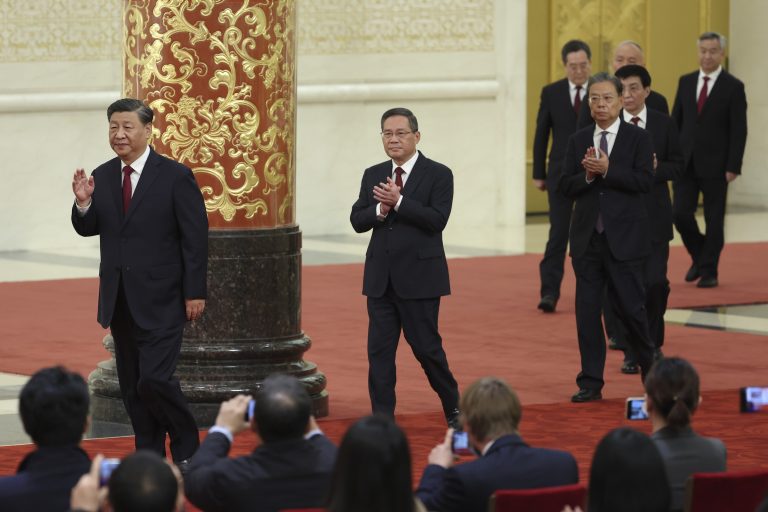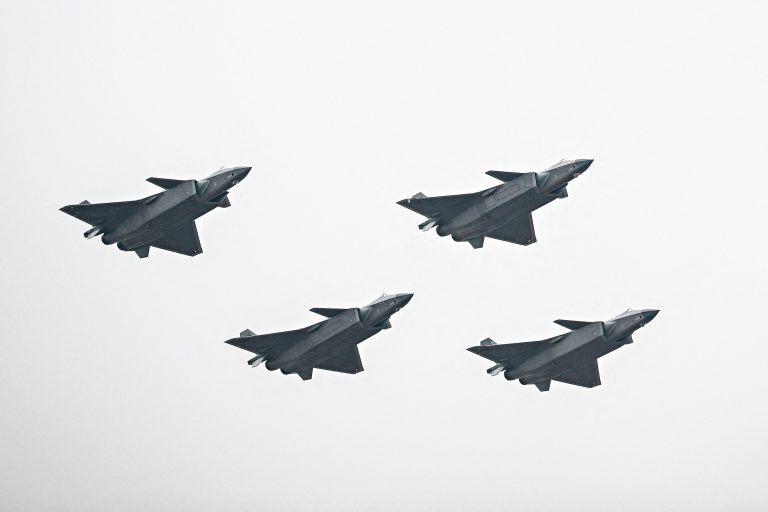Many observers believe that General Secretary Xi Jinping scored an overwhelming victory at the Chinese Communist Party’s 20th Party Congress. They note that the new Politburo and its Standing Committee are stacked with Xi’s allies, while his rivals have been removed. They also point out that amendments to the Party constitution further entrenched Xi’s position.
Convinced of Xi’s total dominance, observers go on to speculate what he might do next. They believe that Beijing will not move away from “zero-COVID” or truly ease up on pandemic control restrictions. They also believe that Xi is poised to invade Taiwan ahead of schedule because he no longer has “checks and balances” in the top leadership to hold him back. Further, some think that Xi is reverting China to a planned economy given his ideological bent.
Most mainstream observations about Xi’s present political strength are based on a misreading of CCP elite politics. By not grasping what really unfolded at the 20th Party Congress, observers also risk mis-evaluating the Chinese leader’s next moves.
Not all Xi’s men
The new 24-person Politburo is composed mostly of Xi Jinping loyalists and technocrats. However, Xi’s loyalists make up just over half of the Politburo (Xi excluded) — hardly an indication that the Xi camp enjoys unquestioned consensus in the CCP’s top leadership.
Nine of the 13 Xi loyalists (Li Qiang, Cai Qi, Chen Min’er, Huang Kunming, Li Shulei, Shi Taifeng, He Lifeng, Ding Xuexiang, He Weidong) are old colleagues, former subordinates, or local garrisoned military personnel in the provinces or in the central government, while two others have a personal relationship with Xi or his family (Zhang Youxia and Li Xi). Xi’s heavy reliance on people he had a working or personal relationship with indicates that he does not have a proper faction and wide network of personnel to call upon.
READ MORE:
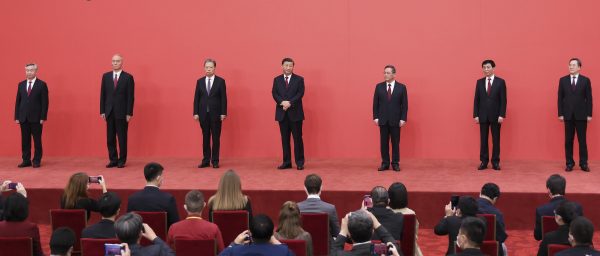
Success
You are now signed up for our newsletter
Success
Check your email to complete sign up
There are six technocrats in the Politburo, namely, Ma Xingrui, Yuan Jiajun, Zhang Guoqing, Li Ganjie, Yin Li, and Chen Jining. As technocrats were elevated by Xi, they can technically be counted as Xi “loyalists” provided the latter preserves or improves his political position. Yet it is unclear where these technocrats will stand should Xi’s political status and “quan wei” (authority and prestige) be undermined.
Meanwhile, four members of the Politburo and its powerful Standing Committee — Zhao Leji, Wang Huning, Li Hongzhong, and Wang Yi — are associated with the Jiang Zemin faction, Xi’s chief political rivals.
Wang and Li Hongzhong have shown loyalty to Xi and are unlikely to stir trouble for Beijing so long as Xi’s position is secure. But things are less certain with Politburo Standing Committee members Zhao Leji and Wang Huning.
Wang Huning has always been a political chameleon, a trait that has allowed him to serve under three consecutive Party bosses. While there are no obvious signs that Wang has worked against Xi’s interests so far, he can reliably be expected to take the side of the person or group that he believes to have an upper hand in the CCP factional struggle. This means that Wang could flip allegiances should Xi find himself in an untenable position when the various domestic and external crises facing the People’s Republic of China (PRC) come to a head.
There are more signs that Zhao Leji is not fully on board with the Xi agenda and harbors split allegiances. During Xi’s second term, the anti-corruption authorities under Zhao arrested very few high-level officials but instead took out many low-level “flies.” Meanwhile, progress with investigating the “Sun Lijun political gang,” the most prominent grouping of senior officials and Jiang faction associates purged over the last five years, was made only after Xi ally Wang Xiaohong took over key positions in the public security system.
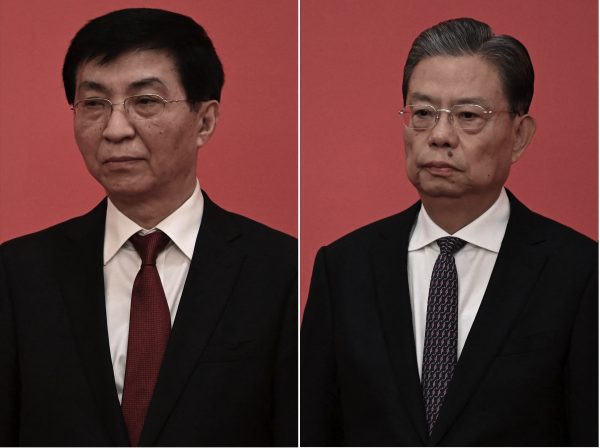
It is possible that Xi suspects that Zhao has been “publicly complying but privately defying” (陽奉陰違) Party Central “with Comrade Xi Jinping at the core” on the anti-corruption issue, and hence had his loyalist Li Xi replace Zhao as anti-corruption chief.
Zhao also exceeded his jurisdiction as anti-corruption boss when he reprimanded anti-corruption officials in the provinces in 2020 for not carrying out “610 Office” work, according to reporting by Minghui.org. Xi had earlier disbanded the “610 Office,” which was established by Jiang Zemin in 1999 to oversee the persecution of Falun Gong, in 2018 as part of state and Party institutional reform. Zhao taking “extra” effort to promote the anti-Falun Gong campaign, which falls outside his purview, while not diligently pursuing Xi’s factional foes indicate that he could pose trouble for Beijing in his new portfolio.
The promotion of Zhao Leji and Wang Huning to higher-ranked spots in the Politburo Standing Committee appears to be a compromise between Xi Jinping and the Jiang faction, of which the main representatives are retired Party elders.
Zhao and Wang could be handed important portfolios — the National People’s Congress and the Chinese People’s Political Consultative Conference — come the Two Sessions meeting in March 2023. In exchange, the Jiang faction would have reached a “consensus” with Xi on his 20th Party Congress agenda, including Xi taking a third term, breaking personnel reshuffle norms to promote a few of his allies to top office, and amending the Party constitution.
If Xi indeed was compelled to make this personnel compromise with the Jiang faction, it would mean that his chief rivals still retain outsized influence in the CCP regime and Xi is nowhere near as dominant as most observers believe.
- Xi Tightens Grip on China’s Police Force Ahead of 20th Party Congress
- Xi vs. Li? Analyzing Political Rumors About a ‘Split’ Between China’s President and Premier
Written and not written
Another sign that Xi is less powerful than appearances suggest is the non-inclusion of the “Two Establishes” into the Party constitution at the 20th Party Congress. The “Two Establishes” — “establishing Comrade Xi Jinping as the core of Party Central and the core of the whole Party” and “establishing the guiding position of Xi Jinping Thought on Socialism with Chinese Characteristics for a New Era” — were strongly promoted in propaganda after the Sixth Plenum of the 19th Central Committee in late 2021 and before the 20th Party Congress.
Central Party History and Documentation Research Institute dean Qu Qingshan once described the “Two Establishes” as the “profound summary of the historical experience of the Party’s century of struggle, and especially of the great practical struggle since the 18th Party Congress,” and “the most important political achievement formed under the historical conditions of socialism with Chinese characteristics entering a new era.”
Given the earlier emphasis on the “Two Establishes,” its omission from the Party constitution amendments is a glaring reflection of Xi’s less-than-absolute political strength. Instead of his “Two Establishes,” Xi had to settle for adding a shortened form of his “Two Safeguards,” “four consciousnesses,” and “four self-confidences” to the Party constitution. The concept of those theories were previously added to the Party constitution at the 19th Party Congress, and hold less weight than the “Two Establishes.”
- As Challenges Mount, China’s Xi Calls for ‘Self-Revolution’
- Communist Politics Are Bringing Disaster to China–And Xi Jinping
- ‘Unified National Market’ Push Exposes Steep Challenge of Reforming China’s Economy
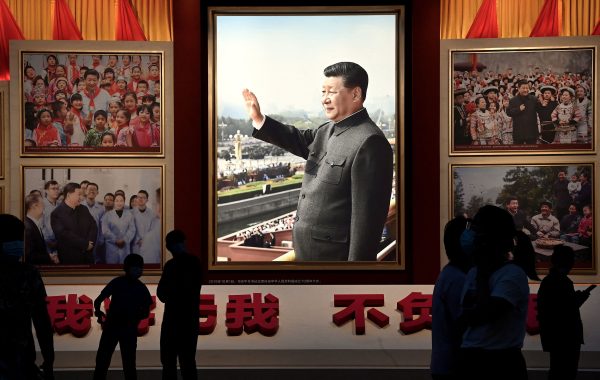
Another sign that Xi is not as powerful as popularly believed is the Party constitution not being amended to have him serve as Party Chairman. In the lead up to the 20th Party Congress, observers were speculating that Xi could revise the Party constitution to allow himself to take the title, which has long been associated with Mao Zedong and is far more prestigious than the General Secretary title.
Xi is also not as strong as perceived if the standards of mainstream China watchers are used. Mainstream China watchers have long believed that Xi would shorten his “Xi Jinping Thought on Socialism with Chinese Characteristics for a New Era” to just “Xi Jinping Thought” when amending the Party constitution at the 20th Party Congress, and the shortening would be a sign of his strength. However, Xi’s political theory remained unchanged.
We believe that China watchers are mistaken to begin with in anticipating that Xi would truncate his political theory because he wants something to stand him apart from his predecessors. Mainstream China watchers were also off in predicting that Xi would get the title “People’s Leader” written into the Party constitution.
What’s next for Xi
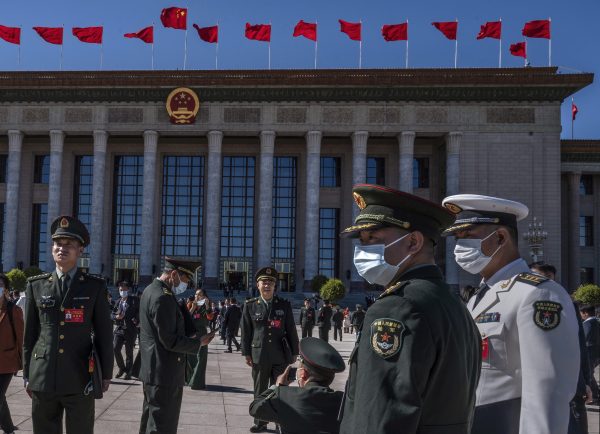
READ MORE
- In Leaked Recording, Elite Chinese Scholar Laments Crippling Dysfunction of Communist Regime
- Pelosi’s Taiwan Visit Sharpens Tensions at a Bad Time for Beijing
Based on our assessment, Xi Jinping made his 20th Party Congress personnel arrangements to enhance his control over the regime and better allow the central government to address the many internal and external crises facing the PRC. Xi has long been plagued by the “orders not leaving Zhongnanhai” problem, or bureaucratism and local governments pursuing self or factional interests affecting Beijing’s ability to get things done. With Xi loyalists in crucial posts overseeing the economy and anti-corruption work, Beijing is in a better position to pursue its solution to the PRC’s problems, at least theoretically.
Xi’s priority would be the economy given its dire straits. To that end, Beijing would look to ease “zero-COVID” restrictions and court foreign investments; whether or not Xi would succeed in doing both is a separate issue. Meanwhile, Beijing may pursue “semi-isolationist” policies like “dual circulation” or “common prosperity” to address national security concerns, but will very unlikely revert China to a planned economy because the CCP is still striving to survive and dominate in an unfavorable international environment, and a strong economy is necessary to do both.
The Xi leadership would also very unlikely launch an invasion of Taiwan in the short term because reviving the Chinese economy is far more important for the CCP and the People’s Liberation Army is still some years away from being able to consider taking Taiwan successfully.
Economic and financial work aside, Xi has hinted that he is looking to settle unfinished business on the anti-corruption front. In his 20th Party Congress work report, Xi remarked that “a number of prominent issues and problems — some of which had been building for years and others which were just emerging” had occurred under his predecessors, and “urgent action” was required. Li Xi, a Xi loyalist, was later appointed as the new anti-corruption head. And Xi indicated that he was preparing a “Yan’an style” rectification movement by bringing the new Politburo Standing Committee to tour the CCP’s old revolutionary base at Yan’an in Shaanxi Province after the 20th Party Congress.
Such signs indicate that Xi is planning in the near term to step up his “self-revolution” campaign to root out those responsible for corruption and other “prominent issues and problems” plaguing the PRC, that is, the Jiang faction and its remaining supporters.
Larry Ong is a senior analyst with New York-based political risk consultancy SinoInsider. He was part of the SinoInsider team that forecasted the 19th Party Congress and 2018 Two Sessions personnel reshuffles with a high degree of accuracy.



